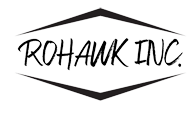In Canada, the tax implications of flipping a house can vary based on whether the individual flipping the property is considered an individual or a business.
For individuals, any profit made from the sale of a property that is not their primary residence is now considered a taxable income vs capital gain and is subject to tax. For part time flippers this can be a huge change in their business model.
For businesses, the profits made from flipping houses are considered business income and are taxed at the corporate tax rate, which is generally higher than the individual tax rate. In addition, expenses related to flipping the property, such as legal fees, advertising costs, and renovations, can be claimed as business expenses and deducted from the taxable income.
It is recommended that individuals or businesses engaging in house flipping seek the advice of a tax professional to ensure that they are properly reporting their income and expenses and paying the correct amount of tax.
Flipping a house in Canada can result in significant tax implications, depending on whether the individual or business is considered an investor or a trader. Understanding the tax rules and seeking professional advice can help individuals or businesses minimize their tax liabilities and maximize their profits.
